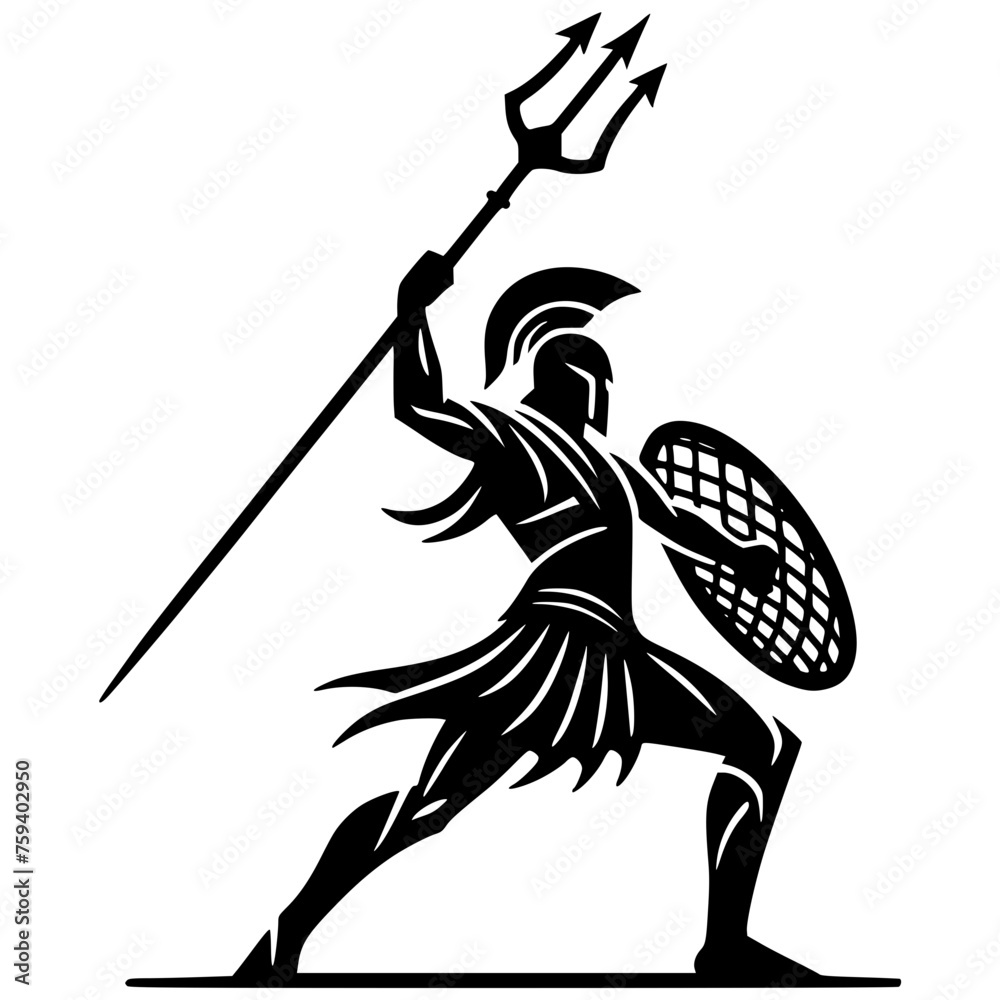Gladiator Paroles Traduction: Unlocking The Power Of Ancient Warriors
Have you ever wondered what the legendary gladiators were really saying in those epic battles? The phrase "Gladiator Paroles Traduction" might sound a bit fancy, but it’s all about uncovering the hidden meanings behind the words spoken by these ancient warriors. This isn’t just about translating ancient Latin—it’s diving deep into a world where honor, strength, and survival were everything. So, grab your sword—or at least your favorite beverage—and let’s explore the fascinating realm of gladiator paroles traduction.
Gladiator paroles traduction is more than just a linguistic exercise. It’s about understanding the cultural and historical context of the Roman Empire. Imagine yourself in the Colosseum, surrounded by thousands of roaring fans, and a gladiator steps forward, shouting something in Latin. What does it mean? Why does it matter? These questions will guide us as we uncover the secrets of gladiator paroles traduction.
This article isn’t just for history buffs or language enthusiasts; it’s for anyone who appreciates the power of words and the stories they tell. Whether you’re a fan of ancient history, a lover of languages, or simply curious about the world of gladiators, this journey will give you a fresh perspective on one of history’s most iconic figures. Let’s dive in!
Table of Contents
- The History Behind Gladiator Paroles Traduction
- Understanding Latin: The Language of Gladiators
- The Colosseum: Where Words Meant Life or Death
- Famous Gladiator Phrases and Their Meanings
- Cultural Impact of Gladiator Paroles Traduction
- Gladiator Paroles Traduction in Modern Times
- Training and Preparation: Words as Weapons
- Common Myths About Gladiator Paroles
- Resources for Learning More About Gladiator Paroles Traduction
- Conclusion: Why Gladiator Paroles Traduction Matters Today
The History Behind Gladiator Paroles Traduction
Gladiator paroles traduction takes us back to the heart of the Roman Empire, where gladiators weren’t just fighters—they were performers, celebrities, and symbols of power. The tradition of gladiatorial combat began around the 3rd century BC, and by the time of the Roman Empire, it had evolved into a complex spectacle that combined entertainment with politics. But what about the words they spoke?
Gladiators often shouted phrases during battles, some of which were recorded in ancient texts. These phrases weren’t just random exclamations; they carried deep meaning and purpose. For instance, the famous phrase "Ave, Imperator, morituri te salutant!" translates to "Hail, Emperor, those who are about to die salute you!" This phrase was used to acknowledge the emperor’s authority and to remind everyone of the gravity of the situation.
Understanding gladiator paroles traduction requires delving into the social and political climate of ancient Rome. The words spoken by gladiators reflected not only their personal beliefs but also the expectations of the audience and the rulers. It was a delicate balance between bravery, respect, and rebellion.
Understanding Latin: The Language of Gladiators
Latin was the lingua franca of the Roman Empire, and it played a crucial role in gladiator paroles traduction. But Latin wasn’t just one language—it had many variations and dialects, depending on the region and social class. Gladiators, who often came from diverse backgrounds, would adapt their speech to fit the expectations of their audience.
Some key Latin phrases associated with gladiators include:
- "Alea iacta est" – "The die is cast," indicating a point of no return.
- "Vincit qui se vincit" – "He conquers who conquers himself," emphasizing self-control.
- "Ad victoriam" – "To victory," a rallying cry for success.
Learning Latin can be a rewarding experience, especially when it comes to understanding gladiator paroles traduction. It’s like unlocking a secret code that connects us to the past. And while modern Latin may not be exactly the same as what gladiators spoke, it’s still a powerful tool for exploring their world.
The Colosseum: Where Words Meant Life or Death
Step into the Colosseum, and you’ll feel the weight of history pressing down on you. This massive amphitheater wasn’t just a place for entertainment; it was a stage where the fate of gladiators was decided. The words spoken here could mean the difference between life and death.
Gladiators often used their voices to communicate with the crowd, the emperor, and even their opponents. A well-timed phrase could sway the audience’s favor, earning them a reprieve or even a chance to fight another day. Some gladiators became so popular that their words were immortalized in graffiti and literature, becoming part of the cultural fabric of Rome.
The Colosseum was also a place where silence spoke volumes. When a gladiator fell, the crowd’s reaction could determine their fate. A thumbs-up meant mercy, while a thumbs-down meant death. The power of words—and the absence of them—was undeniable in this arena.
Famous Gladiator Phrases and Their Meanings
Let’s take a closer look at some of the most famous gladiator phrases and what they mean:
- "Ave, Imperator, morituri te salutant!" – This phrase was a declaration of loyalty and acceptance of fate. It was often used in more formal settings, such as when gladiators entered the arena.
- "Veni, vidi, vici" – "I came, I saw, I conquered," attributed to Julius Caesar, this phrase reflects the confidence and determination of a true warrior.
- "Memento mori" – "Remember that you will die," a reminder of mortality that gladiators took to heart as they prepared for battle.
These phrases weren’t just random words; they were carefully chosen to convey specific messages. They could inspire fear, admiration, or even sympathy, depending on the context. Gladiator paroles traduction is all about understanding these nuances and appreciating the art of communication in ancient times.
Cultural Impact of Gladiator Paroles Traduction
The impact of gladiator paroles traduction extends far beyond the Colosseum. These phrases have influenced literature, art, and even modern language. For example, the phrase "Ave, Imperator, morituri te salutant!" has been adapted in countless films, books, and plays, becoming a symbol of bravery and sacrifice.
Gladiator paroles traduction also played a role in shaping Roman society. The words spoken by gladiators reflected the values and beliefs of the time, such as honor, courage, and loyalty. They were a reflection of the culture that produced them, and they continue to resonate with people today.
In modern times, gladiator paroles traduction is often used as a metaphor for overcoming challenges and achieving success. Whether it’s in business, sports, or personal life, the lessons learned from these ancient warriors can still be applied today. After all, who wouldn’t want to channel the strength and resilience of a gladiator?
Gladiator Paroles Traduction in Modern Times
Believe it or not, gladiator paroles traduction is still relevant today. In fact, it’s more relevant than ever. As we navigate the complexities of modern life, the words and phrases of ancient gladiators can offer valuable insights and inspiration. Here are a few ways gladiator paroles traduction can be applied in today’s world:
- Leadership: The phrase "Vincit qui se vincit" can serve as a reminder to leaders that self-control and discipline are key to success.
- Resilience: The phrase "Memento mori" encourages us to embrace challenges with courage and determination, knowing that life is fleeting.
- Communication: Gladiator paroles traduction teaches us the power of words and the importance of choosing them wisely.
Whether you’re leading a team, facing a personal challenge, or simply trying to improve your communication skills, the lessons of gladiator paroles traduction can help you succeed. After all, if a gladiator could face death with such grace and dignity, what’s stopping you from achieving greatness?
Training and Preparation: Words as Weapons
Gladiators didn’t just rely on their physical strength to survive; they also used their words as weapons. Training in the ludus (gladiator school) wasn’t just about learning how to fight; it was also about mastering the art of communication. Gladiators were taught to use their voices to intimidate opponents, engage the crowd, and even negotiate with the emperor.
The importance of words in gladiator paroles traduction cannot be overstated. A well-placed phrase could turn the tide of a battle, earning the gladiator the favor of the crowd or the mercy of the emperor. It was a skill that required practice, discipline, and a deep understanding of human psychology.
Today, we can learn from the gladiators’ approach to communication. Whether you’re negotiating a business deal, giving a presentation, or simply having a conversation, the words you choose can make all the difference. Gladiator paroles traduction reminds us that words are powerful tools that should be used wisely.
Common Myths About Gladiator Paroles
There are many myths surrounding gladiator paroles traduction, and it’s important to separate fact from fiction. Here are a few common myths:
- Myth: All gladiators spoke perfect Latin. Reality: Gladiators came from diverse backgrounds and spoke many different languages. Their Latin was often a mix of dialects and slang.
- Myth: Gladiator paroles were always serious and formal. Reality: Some gladiators used humor and wit to entertain the crowd and gain their favor.
- Myth: Gladiator paroles were only used in battle. Reality: Gladiators also used their voices to communicate with each other during training and in everyday life.
By dispelling these myths, we can gain a more accurate understanding of gladiator paroles traduction and appreciate the complexity of the gladiators’ world.
Resources for Learning More About Gladiator Paroles Traduction
If you’re interested in learning more about gladiator paroles traduction, there are many resources available. Here are a few to get you started:
- Books: "The Gladiator: The Secret History of Rome's Warrior Slaves" by Alan Baker provides a comprehensive look at the world of gladiators.
- Online Courses: Websites like Coursera and edX offer courses on ancient history and Latin, which can help you understand gladiator paroles traduction.
- Documentaries: Films like "Gladiators: Back from the Dead" offer a visual exploration of the gladiatorial world.
Whether you’re a history buff, a language enthusiast, or simply curious about the world of gladiators, these resources can help you deepen your understanding of gladiator paroles traduction.
Conclusion: Why Gladiator Paroles Traduction Matters Today
In conclusion, gladiator paroles traduction is more than just a historical curiosity—it’s a powerful reminder of the importance of words and communication. From the Colosseum to the modern world, the lessons of gladiator paroles traduction can help us navigate the challenges of life with courage, resilience, and wisdom.
So, the next time you face a difficult situation, remember the words of the gladiators: "Veni, vidi, vici." Embrace the challenge, choose your words wisely, and let your inner gladiator shine. And don’t forget to share this article with your friends and family—it’s the perfect way to spread the power of gladiator paroles traduction!

Gladiators , Gladiator Svg Vector, Gladiator Png, Gladiator Cricut
Gladiator Vector SVG Icon SVG Repo

Everything to Remember About 'Gladiator' Before Watching the Sequel